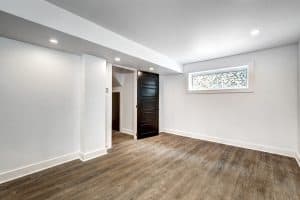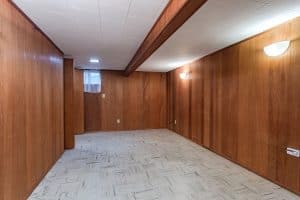Putting your house on Airbnb can help you earn more money on the side. But you might be wondering if it's ever possible to list your basement on Airbnb. We've consulted with real estate experts, and here’s what they have to say.
You can put your basement up for rent on Airbnb. But you need to meet certain requirements for you to acquire customers for your rental space. These include:
- Providing amenities
- Registering the correct home type
- Indicating the number of allowable guests
- Selecting the city or location of the space
- Stating the costs to rent the unit
Complying with these requirements can also prevent violations from the online marketplace for lodgings. Read further to know more about these necessities so you can make the most out of renting your basement on Airbnb.

How Do I Put My Basement On Airbnb?
Putting your basement on Airbnb necessitates that you comply with a number of stipulations. Filling as many details as possible in your listing can help improve your chances of attracting guests and reducing the risks of violations.

You are required to do the following:
1. Provide Amenities
Your basement needs to meet appropriate standards that can deliver optimal comfort and convenience to guests. Airbnb lists the top amenities guests are looking for in a rental space as follows:
• Wi-Fi
• Swimming pool
• Jacuzzi
• Kitchen
• Heating
• Air conditioning
• Washer
• TV
Also, ensure that you have a bathroom in your basement rental space. That way guests won't have to use a common bathroom in your home. To learn more about this topic, read through this post: Can You Put A Bathroom In A Basement?
2. Register The Correct Home Type
Airbnb offers different listing options for property owners and managers. These choices include:
- Entire place: Renters will have the entire space to themselves.
- Private rooms: Occupants will have a private space but may share some areas of the property with other people.
- Hotel rooms: Only ideal if you’re listing a room in a commercial space.
- Shared rooms: Renters share common living spaces with other people.
Moreover, more people tend to filter their searches for "entire places" as opposed to "private rooms."
For instance, an Airdna report on the occupancy rates for rental spaces in Los Angeles sees that 78 percent of renters booked for entire homes, and only 17 percent searched for private rooms.
3. Indicate The Number Of Guests
Specify the number of guests that can stay in your basement space temporarily. Make sure that your choice coincides with your lodging. It's important to be strict about this element because it prevents your guests from bringing additional people as unpaying occupants.
Furthermore, you may need to consult with Airbnb for the maximum number of tenants that the property can permit at any given time.
4. Select Your City
Airbnb has a feature wherein the platform shows the available accommodations in a particular area as soon as potential renters type in a city in the search bar. Failure to indicate the location of your basement rental can reduce opportunities for sales significantly.
5. State The Costs
Competitive pricing is ideal to have higher-than-average chances of potential renters booking your basement. You can do market research on the average prices of rental spaces in your area to help you indicate the correct price for your rentable basement.
For instance, the average rental cost of apartments in Atlanta is $132 per night. You can base the price for renting your basement from that number to properly compete with other Airbnb hosts in that city.
Should I Turn My Basement Into An Airbnb?

You can turn your basement into an Airbnb. But you need to understand the laws that can restrict your ability to create a listing for your basement apartment.
For example, it is illegal to list an attic or apartment in New York City. However, you can turn your New York basement into a legal rental space if it meets the correct requirements. These qualifications include the following:
- The basement meets the standard requirements for air, light, hygiene, and exits.
- The basement needs to have a ceiling height of at least 7 feet.
- A window should be present and should open to a court, garden, street, or yard.
- Basement bedrooms can’t become passages to other rooms.
- Basement bedroom spaces should be at least 80 square feet in size.
Consult with the appropriate department to see if your basement meets all the legal requirements to operate as a rental space in your city.
Is Renting Out Your Basement A Good Idea?
Renting out your basement is a good idea if you’re looking to earn extra cash on the side. For example, if your home is in Ohio, you can have transient renters stay in your basement for about $118 per night.
Otherwise, you can consider a long-term arrangement with your tenants for them to pay on annual or monthly terms. This setup could benefit your financial needs, especially if you want a means to acquire a long-term passive income.
In certain cases, long-term basement rental arrangements can give landowners better peace of mind than renting out these spaces for short periods. For example, the monthly costs to rent your basement is $1,500 or $50 per day. You can also rent out the basement for $80 per night.
If you have a customer every day for one month, you can pocket $1,600. But the challenge here is to search for potential renters every day. Realistically, it can be quite tough to search for daily clients. Therefore, expect that you won’t achieve that $1,600 gross income every month.
Additionally, you need to take note of some drawbacks to long-term basement rentals. These shortcomings include less privacy, reduced living and storage space, and possibly dealing with unruly occupants.
Still, you can take advantage of certain solutions that can help reduce these issues. For instance, you can make your basement soundproof to significantly reduce the noise coming from the subterranean space. Read our post on How To Soundproof A Basement Apartment to learn more about that topic.
Can I Live In My Basement And Rent Out My House?
You can live in your basement and rent out the rest of your house to tenants. It’s a good way to earn extra cash and without the need to go house or apartment hunting for your new living space.
GOBankingRates examined the average money spent on rental housings for different states. That article can help show you the estimated amount of money you can earn if you rent your home. Check out these examples of rent prices in different states:
• California: $2,518
• Washington, D.C: $2,711
• Massachusetts: $2,252
• New York: $2,050
• New Jersey: $2,062
Final Words
You can list your basement into a rental space on Airbnb. Make sure to provide amenities to make the space comfortable and convenient for occupants.
Also, don’t forget to register your basement with the correct home type and supply other important details on Airbnb. That way, you can compete with other hosts in your area and take advantage of more opportunities from your listing.



![A house under construction made from cinderblocks, Are Cinder Block Walls Soundproof [Including 6 Methods for Pre & Post Construction]](https://basementing.com/wp-content/uploads/2022/01/A-house-under-construction-made-from-cinderblocks-300x200.jpg)